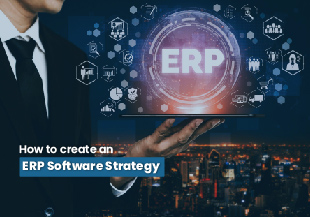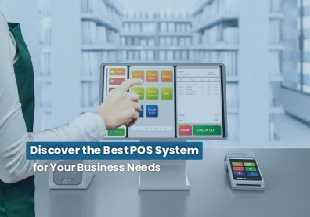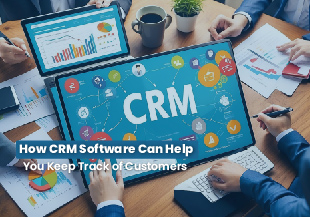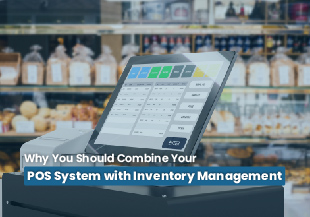Enterprise Resource Planning (ERP) and financials are two terms that are often used interchangeably in the business world.
Enterprise Resource Planning
(ERP) and financials are two terms that are often used interchangeably in the
business world. However, there are significant differences between the two
concepts. In this article, we will explore the distinctions between ERP and
financials and how they can impact your business.
What is ERP?
ERP stands for Enterprise
Resource Planning. It is a software system that integrates all aspects of a
company’s operations into a single, comprehensive system. ERP systems typically
include modules for accounting, human resources, inventory management, supply
chain management, customer relationship management, and more.
The goal of an ERP system is to
provide a complete view of a company’s operations in real time. By integrating
all aspects of a company’s operations into a single system, an ERP system can
provide valuable insights into a company’s performance and help streamline
business processes.
What are Financials?
Financials, on the other hand,
refer specifically to a company’s financial management system. This includes
accounting, budgeting, financial reporting, and financial analysis. Financials
are a critical component of any business because they help companies understand
their financial performance, make informed business decisions, and comply with
regulatory requirements.
While financials are a component
of the ERP
system, they are not the same thing. ERP systems include financial modules,
but they also encompass other aspects of a company’s operations. In contrast,
financials are solely focused on managing a company’s financial resources.
Key Differences between ERP and Financials
Now that we have defined ERP and
financials, let’s explore the key differences between the two concepts.
Scope
The primary difference between
ERP and financials is their scope. An ERP system is designed to manage all
aspects of a company’s operations, while financials are focused solely on
managing a company’s financial resources.
While ERP systems include financial
modules, they also encompass other aspects of a company’s operations, such as
supply chain management, inventory management, and human resources. In
contrast, financials are solely focused on managing a company’s financial
resources, such as accounting, budgeting, financial reporting, and financial
analysis.
Functionality
Another key difference between
ERP and financials is their functionality. An ERP system is designed to
integrate all aspects of a company’s operations into a single system, providing
a complete view of a company’s operations in real time. This includes
financials, but it also includes other aspects of a company’s operations.
In contrast, financials are
focused solely on managing a company’s financial resources. Financials
typically include modules for accounting, budgeting, financial reporting, and
financial analysis. While these modules are also included in ERP systems, they
may be more limited in functionality compared to standalone financial systems.
Integration
One of the key benefits of ERP
systems is their ability to integrate all aspects of a company’s operations
into a single system. This integration allows companies to streamline their
business processes, improve efficiency, and reduce costs. Financials are a
component of ERP systems and are integrated into the overall system.
However, standalone financial
systems may not integrate as seamlessly with other systems as ERP systems do.
This can lead to data silos and inefficiencies in business processes.
Customization
ERP systems are highly
customizable and can be tailored to meet the specific needs of a company. This
customization allows companies to configure the system to meet their unique
business requirements, including financials.
In contrast, standalone
financial systems may be more limited in terms of customization. While these
systems may offer some level of customization, they may not be as flexible as
ERP systems.
Cost
ERP systems can be expensive to
implement and maintain. This is because these systems are highly complex and
require significant resources to implement and customize. However, the benefits
of an ERP system can outweigh the costs for many companies.
Standalone financial systems
may be less expensive to implement and maintain compared to ERP Software in Pakistan
ERP software has become
increasingly popular in Pakistan, as companies seek to improve their business
processes, streamline their operations, and gain a competitive advantage. With
the rise of digital technologies and the increasing importance of data
analytics, ERP systems have become a critical tool for companies seeking to
optimize their operations and stay ahead of the competition.
There are many ERP software
providers in Pakistan, offering a range of solutions designed to meet the specific
needs of different industries and business types. Some of the leading ERP
software providers in Pakistan include Oracle, SAP, Microsoft, and Sage.
ERP System in Pakistan
ERP systems are becoming
increasingly important in Pakistan, as companies seek to improve their business
processes, increase efficiency, and reduce costs. Many companies in Pakistan
are recognizing the benefits of an ERP system and are investing in these
systems to help them gain a competitive advantage in the market.
One of the key benefits of an
ERP system is its ability to integrate all aspects of a company’s operations
into a single system. This integration allows companies to streamline their
business processes, reduce inefficiencies, and improve productivity. In
addition, an ERP system can help companies gain valuable insights into their
operations, enabling them to make informed business decisions and respond
quickly to changing market conditions.
ERP in Pakistan
ERP systems have become
increasingly popular in Pakistan, as companies seek to optimize their
operations and gain a competitive advantage in the market. In recent years, the
use of ERP systems in Pakistan has grown significantly, as companies recognize
the benefits of these systems and the impact they can have on their bottom
line.
The implementation of an ERP
system in Pakistan can be challenging, as it requires significant resources and
expertise. However, the benefits of an ERP system can outweigh the costs, and
many companies in Pakistan are finding that these systems are essential for
their growth and success.
Conclusion
In conclusion, while ERP systems
and financials are often used interchangeably, they are distinct concepts with
significant differences. ERP systems are designed to manage all aspects of a
company’s operations, while financials are focused solely on managing a
company’s financial resources.
While ERP systems can be
expensive to implement and maintain, they offer a range of benefits, including
improved business processes, increased efficiency, and valuable insights into a
company’s operations. In Pakistan, many companies are recognizing the
importance of an ERP system and are investing in these systems to help them
stay ahead of the competition and achieve their business goals.






 Chat with Prismatic Bot
Chat with Prismatic Bot